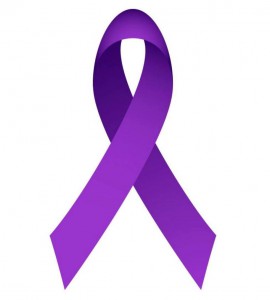Domestic Violence and Abuse in New Jersey: Where to Find the Help You Need

As we recently depicted in “Faces of Domestic Violence,” it is not always easy to identify domestic abuse, especially in its more subtle forms. This means that often, people in the grip of this problem delay seeking help until a situation has become overwhelming or dangerous. Without professional help, signs of abuse rarely disappear and frequently worsen over time. In this post, we are urging you to take action at the first sign of a problem.
What kind of help should you seek and where?
For subtle signs of abuse that have not yet escalated into actual domestic violence, a good place to begin is with a family therapist. For example, if one or both of you has difficulty communicating without resorting to screaming or insults, becomes unnecessarily jealous, or tries to monitor or control the activities or finances of the other, these are signs of trouble. It is always appropriate to contact a domestic violence hotline for any level of abusive behavior. Hotline responders are trained to evaluate many different types of situations and direct callers to appropriate resources. Another good place to start is by consulting with a family therapist, either individually or together, depending on your situation. A therapist can give you some perspective on your situation and provide input on how best to move forward. Any mental health or substance abuse issues which may be contributing to the problem must be addressed. Available resources include individual or couples therapy, anger management classes, and substance abuse treatment.
For more seriously abusive situations, including any situation that has escalated into violence or threats of violence, any type of physical restriction or control, or any level of financial manipulation that threatens your economic independence, you need to take more immediate and drastic action. Call a domestic violence hotline and/or consult free of charge with an attorney experienced in domestic violence.
If you are afraid of your partner, former partner, or household member for any reason, or if your confidence and self-esteem have suffered in the relationship, these are signs that you need help. Contact one or more of the following to get you started on a healthier path:
Resources for Advice & Support:
FOR IMMEDIATE HELP CALL 911 OR YOUR LOCAL EMERGENCY SERVICE
New Jersey Domestic Violence Hotline: 1 (800) 572-7233 (SAFE)
National Domestic Violence Hotline: 1 (800) 799-7233 (SAFE)
New Jersey Coalition to End Domestic Violence (NJCBW): (609) 584-8107
NJCBW’s Guide to Services in New Jersey for Victims of Domestic Violence includes extensive listings of emergency and transitional safe housing.
New Jersey Adult Protective Services (APS) Providers is a list of adult protective service providers from the New Jersey Department of Health and Human Services.
New Jersey DCF’s Family and Community Partnership Guide provides county-by-county information on programs for children and families affected by domestic violence, including the Kinship Navigator Program, which aids caregivers such as blood relatives or family friends who have assumed responsibility for children; the PALS (Peace: A Learned Solution) Program, which operates in 11 counties and provides counseling and creative arts therapy for children aged four to twelve who have witnessed domestic violence; and various other home and school-based programs.
Shelter Our Pets provides assistance to New Jersey residents who need help housing pets while staying at a domestic violence shelter: 973-506-9696
Center for Hope and Safety is a New Jersey non-profit association dedicated to assisting and empowering victims of domestic violence and their children: (201) 944-9600

